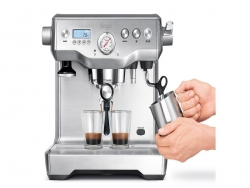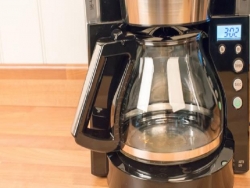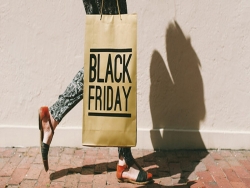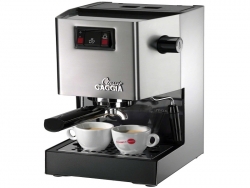The 26-Point Checklist to Prepare Your Store for Black Friday and Cyber Monday
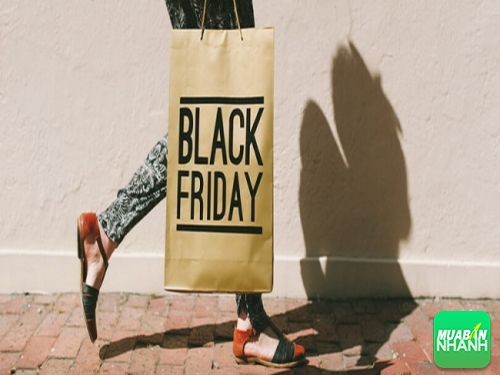
Running a successful Black Friday sale can cause a lot of stress for many store owners as they prepare their business for a massive influx of traffic and sales. I wrote this post specifically to help make it easier for you and ensure this year's holiday is a profitable one for your business.
This 26-point Black Friday and Cyber Monday checklist ensures your store is in the best position possible to not only succeed and make a lot of money during the holiday season, but also minimize the stress and headaches this season brings to a lot of business owners. This list will also help you cover all of your bases and give you ideas on preparing and running your holiday sale this year. Go through it, implement and steal the ideas that work for you, and evaluate. Let's get into it:
Start Now
1. Customers are looking for information and researching earlier than you might expect.
Prepare your holiday sales as early as you can and begin letting your customers and visitors know about your upcoming sale months in advance.
According to research from NFR, every year, 40% of customers begin researching and doing their holiday shopping as early as October. Not only do you need to start preparing early, but you also need to ensure that customers looking for gift ideas and information on particular products find you.
Planning
2. Plan and organize your sales.
Look at all of your products and plan your sales ahead of time instead of putting on a sale last minute.
One idea is to create a “planned sales map” in Excel, giving you a simple outline of all your upcoming sales.
Choose the products you want to run a holiday sale on and schedule their start dates and sale prices. This way, when the holiday sale rolls around, you can refer to your plans instead of scrambling at the last minute. You can find help in the App Store to make scheduling sales easy.
3. Create contingency plans.
Do you have the proper backups in place in case anything goes awry? What happens if your website goes down? Or the shipping company you work with becomes too busy? Can you wake up your developer at 4am for a quick fix on your website?
I’m not trying to worry you or stir up fears. I’m trying to ensure you’re prepared. Think about the worst case scenarios for your business and come up with backup plans. Hope for the best, plan for the worst.
Demand
4. Test or ensure your website can handle a surge in traffic.
Sometimes, too many simultaneous requests to your website can bog it down and potentially crash your site. This usually takes an enormous amount of traffic to occur, but it’s still a good idea to ensure your host can handle a spike in traffic.
You can test the server load capacity of your store with tools like LoadImpact.com or Blitz.io.
If you’re using , you won’t have to worry about this. Thousands of high-volume merchants regularly experience huge traffic surges, including the infamous Shark Tank effect, without any interruptions.
5. Ensure your store can handle increased demand.
If you rely on a supplier for your inventory, or your product is created or manufactured by you or your team, consider the increased demand you’ll experience during the holiday season. Work with your suppliers and ensure they’re prepared to handle your projected sales for the holiday season. One of the worst things that can happen during a sale is selling out faster than you wanted to and not meeting the demand of your customers.
Creative
6. Create banners and hero images to advertise holiday sales.
What better way to promote your holiday sales than with gorgeous graphics and visuals? Whether you’re planning to use banner ads to promote your holiday sales, or change the header/hero image on your homepage for Black Friday, you don’t need to be a graphic designer to get things done. If you lack the graphic design chops, you could use a template from CreativeMarket or hire a freelance designer to create your graphics.
7. Plan ads and ad copy.
I always like to plan the ads and ad copy I’m about to run for a sale or promotion ahead of time so that I can put more thought into copy and ad placement.
Just remember that bids can get more expensive during the competitive holiday season depending on your niche. This means you may need to increase your bid price on certain keywords to increase visibility of your ads during big holiday sales. If you plan to do paid advertising, it’s a good idea to plan your holiday sale ad budgets as well.
Anticipation
8. Build suspense and buzz around your upcoming sale.
It’s easy to simply announce a Black Friday or Cyber Monday sale, but building suspense and buzz can really help make it a bigger success.
Tease your customers with emails of what’s to come, post sneak-peeks of upcoming sales on social media, and start piquing the curiosity of your customers. The sooner you begin doing this, the more momentum you will have during Black Friday and Cyber Monday when you finally announce the sale to your customers.
Optimization
9. Consider creating abandoned cart emails.
According to Barilliance, the average cart abandonment rate on Black Friday to Cyber Monday 2014 was 65%. Of course, you’ll want try and keep that number as low as possible.
One of the easier and most effective ways of doing this is by setting up awesome abandoned cart emails. This way, when a customer adds a product to their cart but leaves your store, you can use a compelling email to bring them back to complete their purchase.
makes this easy with built-in abandoned checkout recovery and also a nice selection of abandoned cart apps in the App Store to choose from.
10. Think mobile first.
Last year, IBM claimed that mobile traffic surpassed desktop traffic on Thanksgiving for the first time. Additionally, according to Custora, last Black Friday and Cyber Monday weekend saw over 26% of orders come through a mobile device.
Clearly, we should expect this trend to continue and possibly increase. What this means for you as a store owner is that thinking mobile first is very important.
What's your store’s user experience like on mobile? Is it easy and intuitive to make purchases on your store? Is your website mobile responsive?
All of ’s themes are responsive and mobile-friendly, but if you’re not using , test how your store looks on a mobile device.
11. Test your site and get feedback.
What if you could get inside the head of a potential customer and listen to their thoughts as they navigate your store for the first time? There could be things you’re not seeing or areas of your store you could be optimizing, and a fresh pair of eyes can help you iron out those kinks.
There are many ways to get someone to go through your store and give you feedback, but one of my favorite tools is UserTesting. UserTesting allows you to watch a random user go through your website and listen to their feedback. You can also use Peek UserTesting to get a free 5-minute video of a random person using your site.
Listen carefully to the feedback you receive on your store but also don’t be too quick to make changes. Implement changes on your website when more than one person complains about the same thing.
12. Place tracking pixels.
If you use paid advertising such as Facebook Ads or Google Adwords, you should place retargeting pixels on your website so you can remarket to your holiday sale traffic. Here’s how to find and generate tracking pixel code for your website with Facebook Ads and Google AdWords:
You’ll need to place the pixel code snippets into thetags of every page. For help on where and how to paste these code snippets using , read our documentation.
Marketing
According to Nanigans, in 2014, Facebook ad click-through rates were up 66% on Thanksgiving and 36% on Black Friday compared to the Monday before Thanksgiving. This means people are much more receptive to ads during the holiday season.
Since your customers may be paying more attention to ads during this time, marketing can play a big role in the success of your holiday sales. As mentioned earlier, plan your ads and ad creative ahead of time. Here are a few other marketing preparations you should consider for the holiday season.
13. Retarget old traffic and customers.
If you’ve already set up a retargeting pixel on your store, now’s the time to use it. By retargeting previous visitors, you’ll reach people who might have forgotten about your store and wouldn’t have checked out your sale otherwise.
You can also retarget customers that have made a purchase on your store previously. According to Clarity.fm, it’s 50% easier to sell to existing customers than it is to brand new customers. What this means is that people you’ve already sold to in the past will be much more receptive to your Black Friday and Cyber Monday sales.
14. Begin pitching to blogs and gift guides.
Sometimes it can take weeks of back-and-forth with a website before any kind of sponsorship or partnership agreement is reached. That isn’t to say last-second sponsorships or partnerships aren’t possible, but it’s always better to contact blogs and gift guide websites earlier than later.
Find websites talking about Black Friday deals or running gift guides in your niche, and get in touch with them to feature your website and planned sales. If you need help with this, check out our Hacking The Press article.
15. Start your email marketing campaigns.
According to Custora, email marketing drove over 27% of last year’s holiday sales for online retailers. This year, email marketing will likely play an even larger role in the success to most store’s holiday sales. Every business owner should have awesome email marketing campaigns that bring customers back to your website during your holiday sale.
Begin planning, creating and scheduling the emails you’ll be sending out during your Black Friday and Cyber Monday sales. Here are some ideas for email campaigns you can put together:
- Announcing Black Friday/Cyber Monday sale
- Last reminder before sale ends
- Exclusive sale for email subscribers
- Tease/anticipation email, sneak-peek of what sales are to come
Sales
16. Consider having at least one door-buster sale.
A strategy many retailers use is to run a “jaw-dropping” sale on a popular item to lure customers to their store. Once customers come for the doorbuster, they’ll likely pick up a few other items on their way to the checkout.
What jaw-dropping sale will get people to your website? If you’re sending an email to your subscribers, consider focusing on promoting one sale product that you feel is the most enticing, instead of promoting all of your Black Friday and Cyber Monday sales at the same time.
17. Reward loyal customers.
Black Friday and Cyber Monday are opportune times to build relationships with your previous customers and get them to come back.
Send emails to (and retarget) your previous customers with the best deals. Give existing fans and customers the opportunity to access a sale earlier or give them exclusive sales just for being a subscriber on your email list. This also allows you to encourage email signups by offering exclusive sales they won't have access to otherwise.
18. Build in scarcity where possible.
With the holidays come many frantic shoppers looking for the best last-second deals. As many come to expect scarcity during Black Friday and Cyber Monday, don’t be shy about working some scarcity into your store. Consider including countdown timers until sales end and using language on your website such as “limited time” or “limited quantity.”
Customer Service
19. Integrate live chat.
It’s important to be easily and readily accessible by customers (and potential customers) during Black Friday and Cyber Monday. The last thing you want is for someone to leave your website because they couldn’t get an answer quickly enough.
If you want to learn more about live chat and how to integrate it into your store, read our blog post about it.
20. Ensure you have quick and courteous responses.
The holidays are potentially when you’ll be receiving the most questions from customers. Part of providing a fantastic customer service experience is having a quick response time. The other part is being courteous and respectful, even to uncourteous and impatient customers.
One thing you can do is have a few canned responses prepared in Gmail to save yourself some time. Also, refresh your knowledge on kickass customer service practices and share it with your customer service team. Be memorable this year and customers will remember to come back next year.
21. Offer easy and hassle-free returns.
The holidays aren’t just stressful for business owners, they’re also a hectic time for shoppers. Be the online retailer that cares and goes above and beyond the call of duty for their customers. Make their shopping experience an enjoyable one and give them peace of mind knowing that returns are hassle-free. Plus, it might just get those on-the-fence about purchasing your product to pull the trigger since you're showing confidence in your product and removing the risk from the customer.
Track Everything
22. Set up Google Analytics.
Google Analytics is a powerful, free traffic tracking tool that every ecommerce business owner should be using. If you’re not setup with Google Analytics on your store, or you just want to ensure you’re using it properly, check out our beginner's guide on Google Analytics.
23. Set up heatmaps or advanced user/traffic tracking services.
Where are visitors clicking? How do customers read your product pages? While Google Analytics is powerful and good enough for most businesses you might want to have additional user-tracking tools setup to gather more detailed data during Black Friday and Cyber Monday.
I’d recommend checking out heatmap apps in the App Store as well as looking at some advanced analytics tools in the App Store.
24. Keep an eye on the competition.
Keeping an eye on the competition can help you to stay ahead and gather ideas for your own Black Friday and Cyber Monday deals. The easiest way to spy on competitors is to simply subscribe to their email list. Study the types of emails they send and how frequently they send them.
Additionally, keep tabs on competitors on social media and use Google Alerts to see which websites are talking about them. Lastly, VisualPing is a great way to monitor competitor websites for changes. When your competitors make a significant change to their website, you’ll be the first to know.
Post-Black Friday and Cyber Monday
25. Turn those seasonal, one-time shoppers into year-round customers.
Why does your relationship with deal-seekers need to end after the holidays? Take steps to maintain and nurture your relationship with new customers you acquired during Black Friday and Cyber Monday.
Keep your customers engaged year-round by staying active on social media and sending out regular emails to your subscribers. If those seasonal, one-time shoppers didn’t sign up to your email list or follow your social media accounts, then retargeting might be your next best option.
Because you set up those retargeting pixels, those one-time shoppers can wind up being a group of customers you can advertise to year-round. Bring them back to your website and continue to expose them to your brand!
26. Reflect on what worked and what didn’t.
The holiday season is also a great time for your business to learn from its mistakes, failures, and successes. The lessons you learn are worth more than any amount of revenue you make during this period. That’s why it’s important to track everything and reflect on what worked and what didn’t.
Whenever I try anything new with my business, I document it by taking screenshots and notes I can review later. This will give you a benchmark for next year’s holiday while also allowing you to see what’s really working for your business so that you can do more of it.
See more: http://usready.com/how-to-sell-online.html
Posted by Hữu Lợi Tags: ads, Black Friday, business, Creative, Cyber Monday, ecommerce, ecommerce business, how to sell online, more store owners, online, organize your sales, Plan, wonder more











